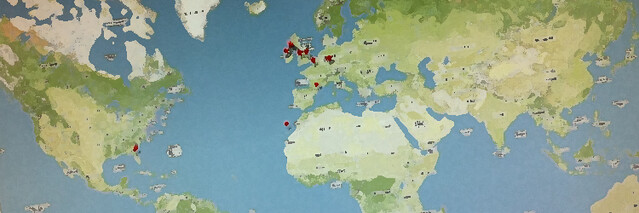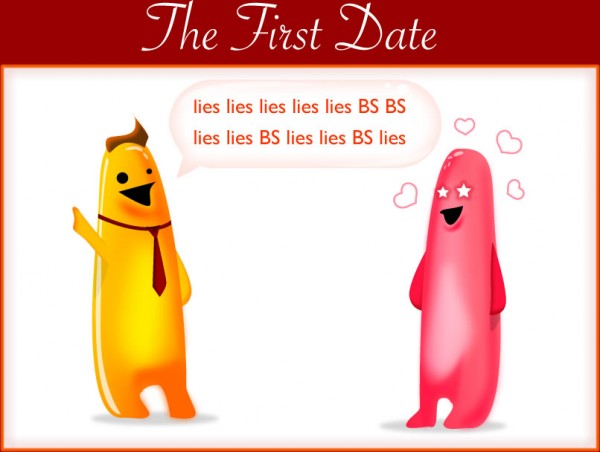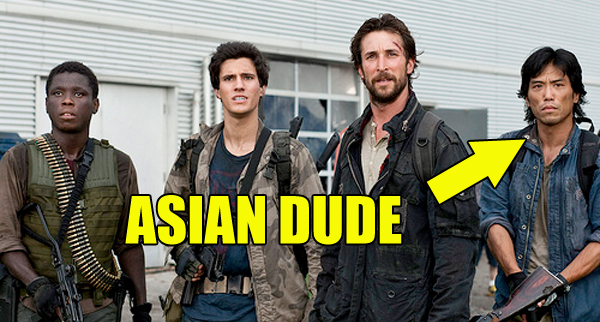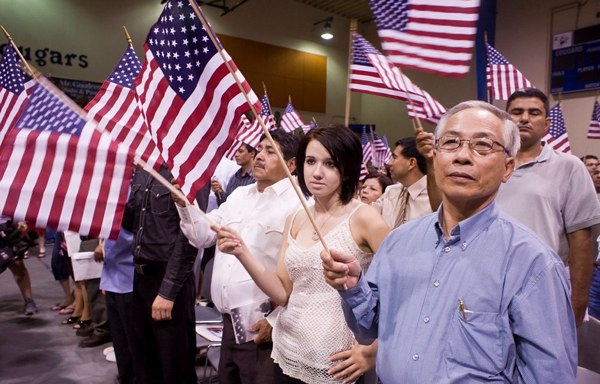http://www.youtube.com/watch?v=HohyllfineM
Bochan is a singer/songwriter from Oakland, California and her music video “Chnam Oun 16” (I am 16) is a cover of a 70’s Cambodian song by Ros Sereysothea about the coming of age for a woman.

http://www.youtube.com/watch?v=HohyllfineM
Bochan is a singer/songwriter from Oakland, California and her music video “Chnam Oun 16” (I am 16) is a cover of a 70’s Cambodian song by Ros Sereysothea about the coming of age for a woman.
 The recent news about the closing of a home in San Gabriel, CA that housed a maternity tourism business, along with the recent focus on anchor babies, has put even more light on the fate of the babies born to wealthy Chinese moms in the United States. When the news first came to light that around 340,000 of the 4.3 million babies born in 2008 had a parent without U.S. citizenship, not much thought was placed on the many wealthy Chinese women who take vacations to the U.S., or what happens to them after they return to China.
The recent news about the closing of a home in San Gabriel, CA that housed a maternity tourism business, along with the recent focus on anchor babies, has put even more light on the fate of the babies born to wealthy Chinese moms in the United States. When the news first came to light that around 340,000 of the 4.3 million babies born in 2008 had a parent without U.S. citizenship, not much thought was placed on the many wealthy Chinese women who take vacations to the U.S., or what happens to them after they return to China.
I just caught the East West Players production of Krunk Fu Battle Battle, and I gotta say, the one word that really describe this hip-hop musical is FUN. Not only are there some sick dance moves executed on stage, the characters are hilarious and relatable at the same time. More after the jump.
Controversy has erupted within the Burschenschaften — more or less the German version of college fraternities, but with sillier hats — over accusations of discrimination after the Alte Breslauer Burschenschaft in Bonn sought to expel a particular Burschenschaft for allowing a German of Chinese descent, Kai-Ming Au, to join. Burschenschaften have traditionally had strict regulations on only allowing Germans of German descent to become members.
While I have a million snarky comments about Germans and discrimination, it’s too easy. Also, I’ve been banned from making remarks about Germans forever after writing about a German Internet company with a squinty-eyed mascot. Four years later and I still get hate-mail.

Every so often, we here at 8Asians get e-mails asking for advice. In this case, this isn’t so much a question about what to wear at a Chinese New Year dinner or what to tell Asians to bring to a chili kick-off, but about Asian identity living in countries outside North America, courtesy of Jason:
8asians primarily deals with Asian Americans, [Asian Canadians] and “Asian ethnicities,” and we often define our experiences within these cultures. However, what information out there is about Asian-Europeans or Asian-Australians? I am sure their experiences are similar due to contact with Western principles, but how different are they? Can people shed light on this topic?
So to those four people that read 8Asians from Melbourne, London, France or Hamburg: you read about the plight of the Asian American here; what’s it like over there? (Oh, and what the hell: let’s throw in South America, too, for our Brazilian friends.)
(Flickr photo: smemon87)
[EDITORS NOTE: We are lucky enough to have the author, Tina Tsai, as a regular contributor to 8Asians! Read her posts.]
Kyle Lin’s got his American dream all planned out–ace all the tests, have extracurricular activities, graduate valedictorian, get accepted into all the top colleges…and hopefully get the girl of his dreams, who just so happens to be his best friend’s girlfriend. His grandfather, who thinks of him as a pathetic failure despite his impressive GPA, has other plans for him and drags him on a trip to Asia to learn about the world outside his classroom walls. There Kyle meets Tai, the rudest, most combative girl he’s ever come across, and after a sure punch in the face, Kyle finds himself whisked away to a world of dragons, goddesses, immortals, and demons. As if that weren’t enough, he’s trapped there with Tai, a girl that clearly hates his guts. To get back home to their own world, Kyle and Tai must learn qi script, the ability to change Chinese calligraphy into tangible power, and figure out how to put up with each other as they go on a quest to the Phoenix Mountain to defeat a legendary demon. The Legend of Phoenix Mountain ($12.99) will take you on an action-packed adventure full of martial arts, teenage drama, and what it really takes to grow up.

For those not au fait with APA blogosphere lingo, “IR disparity” refers to the Asian American heterosexual male’s gripe with Asian American heterosexual females dating and marrying “out,” as in getting it on with non-Asians. Yes, it’s a gripe, a petulant, nagging, neverending whine whine “why don’t you love me?” whine, albeit a legitimate, validated gripe. Every APA blogsite (that counts) has at some point addressed the IR disparity or at least was coerced into addressing it by troll commenters. The IR disparity has a long history of— People, stop chuckling and rolling your eyes here. This issue is as important as civil rights. And in any case I’ve got a solution. A solid one.
 Last year, I had blogged about former Olympic skater Michelle Kwan giving a graduation speech while she herself earning her master’s degree at Tufts’ Fletcher School of Diplomacy. A few weeks ago, Kwan graduated and is now moving to Washington, D.C..
Last year, I had blogged about former Olympic skater Michelle Kwan giving a graduation speech while she herself earning her master’s degree at Tufts’ Fletcher School of Diplomacy. A few weeks ago, Kwan graduated and is now moving to Washington, D.C..
Kwan could not be specific about her immediate work plans, but don’t be surprised to hear she has landed a job with one government agency or another not long after driving her Prius and some of her belongings from Boston to Washington in the middle of June. She already is active in two State Department initiatives under two different administrations. Former Secretary of State Condoleezza Rice made Kwan the first American Public Diplomacy Envoy in 2007. Current Secretary of State Hillary Clinton and Chinese State Councilor Liu Yandong named Kwan an ambassador to a new U.S.-China women’s leadership exchange, Women-LEAD, this April.
 Falling Skies, which premiered on June 19th, is a science fiction drama about human beings are fighting to survive on Earth in a pretty classical alien invasion story, but what really caught my attention was the fact that they had entirely created a small version of a stereotypical American populace setting. On top of that, the Asian, portrayed by Peter Shinkoda, seems like he’s a supporting role consistently throughout the series which makes me happy to see more Asian faces in bigger hit series even if they aren’t leads.
Falling Skies, which premiered on June 19th, is a science fiction drama about human beings are fighting to survive on Earth in a pretty classical alien invasion story, but what really caught my attention was the fact that they had entirely created a small version of a stereotypical American populace setting. On top of that, the Asian, portrayed by Peter Shinkoda, seems like he’s a supporting role consistently throughout the series which makes me happy to see more Asian faces in bigger hit series even if they aren’t leads.
Writer/illustrator (and Community critic) Brian Lam recently launched a mini web comic series, Adamantly Amorous, about an Asian American late bloomer on the search for true love: “ It is inspired by true stories and I wrote it in part to put more material out there with contemporary sympathizable Asian-American main characters.” If you’re in the mood for a romantic comedy, read and enjoy!
http://www.youtube.com/watch?v=_voojg6RKzs&feature=youtu.be
From 8Asians submitter Mary, a parody video by Jawbone based on Ice Cube’s “Today Was a Good Day,” but with Internet start-up life: “I love that this isn’t an “Asian” role but a character that just happens to be an Asian nerd rapping about his great day. Could have easily been some white dude but instead we get to see Hasan Minhaj being idolized for his Angry Birds prowess, exercising with his computer and just being awesomely techie.”
It’s also nice to see Hasan, an actor and stand-up comedian who we’ve profiled before get some nice exposure, made nicer by the fact that Hasan and I really did work at an Internet start-up together two years ago; maybe if someone videotaped us doing sexy things in slow motion to hip-hop music, we wouldn’t have gotten laid off.

In my small sampling of friends and relatives, which includes my parents and a close friend who is South Asian American, all of whom were immigrants to the United States, it seems obtaining U.S. citizenship hasn’t been a top priority in their lives. For my parents who came on a green card from Taiwan, they didn’t choose to get their U.S. citizenship until almost 20 years passed after they came to the U.S., a full 13-plus years after they were legally entitled to apply for citizenship. Likewise my friend and mentor, for most of the 20-plus years he was in the U.S. on a green card, he also chose not to seek out U.S. citizenship.
That’s why it wasn’t that much of a surprise for me to see news about citizenship drives targeted at Asian Americans being advertised for both coasts of the United States.